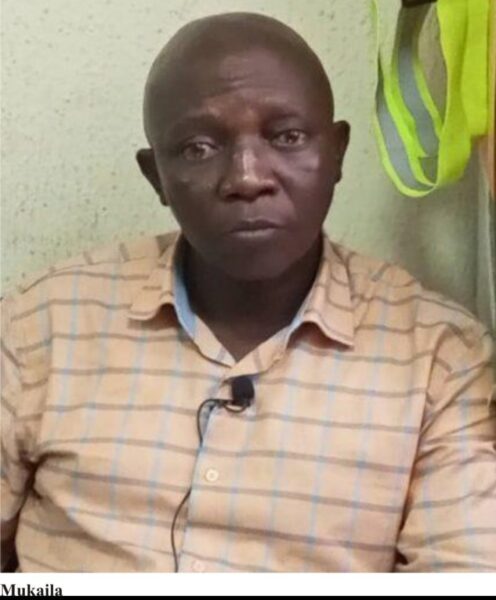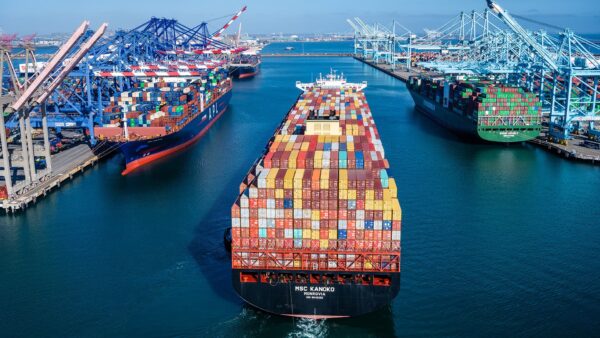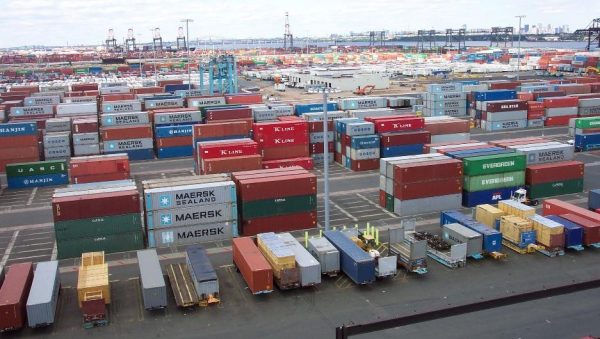Issues Behind Nigeria’s Rising Debt Profile

According to the Debt Management Office (DMO), Nigeria’s total debt as of June 30, 2015 stood at N12.12 trillion. So, when Muhammadu Buhari took over as President, this country’s debt portfolio was N12.12 trillion. By December 31, 2020, the country’s debt portfolio had risen to N32.92 trillion. The most recent statistics from the DMO, covering the first quarter of 2021, showed that the debt portfolio had increased to N33.10 trillion.
The depressing fact is that most of this country’s debts were incurred by the federal government within the last six years. When Nigeria’s debt portfolio was N32.92 trillion in December, 2020, the federal government’s share was a total of N26.91 trillion, leaving a balance of N6.01 trillion to sub-national governments – mainly, the 36 state governments and the Federal Capital Territory. The implication of this is that 83.78 percent of the nation’s debt stock, as at December, 2020, belongs to the federal government, with the sub-national governments accounting for 16.22 percent. This comes with huge repayment commitments for the federal government and our sub-national governments.
What the Buhari government has been doing in the last six years, with its incompetent economists, is reckless borrowing, and has evidently borrowed beyond its repayment convenience. This is why the federal government is in a mess with debt servicing. It recently admitted this much, saying it spent N1.8 trillion on debt servicing from its N1.84 trillion revenues in the first five months of 2021 – January to May. This puts the federal government’s debt-to-revenue ratio, a key measure of debt sustainability, at 97.8 per cent for this reviewed period. Is this not scandalous?
In 2016, the federal government’s debt service to revenue was only 44.6 percent. But by 2020, debt service to revenue had grown to around 84.8 percent. This is why 33 percent of this current budget 2021 is set aside for debt servicing. As more debts mature for payments, the pressure on revenue rises. In the 2019 budget, over N2.1 trillion was set aside for debt servicing. In the 2020 budget, N2.45 trillion was set aside for debt servicing. That was almost 25 per cent of the budget size. No country can attain development with this kind of humongous debt settlement.
In practical terms, the federal government expended N3.10 trillion in debt servicing within 11 months (January-November) 2020, out of its N3.48 trillion retained revenue for the same period. Meaning that for every N100 generated, N89 was expended on debt servicing. This puts Nigeria’s debt-to-revenue ratio, at 89 percent for those 11 months; a far cry from the World Bank’s suggested 22.5 percent for low-income countries like Nigeria.
The huge amount expended on debt servicing, leaves the Buhari government with a little amount to spend on infrastructure. Besides, it has to take more loans and print money to fund personnel cost, pensions and capital expenditure. Printed money is also part of any government’s debt component. The manner the Central Bank of Nigeria has been printing money in the last six years and giving it to the federal government is dizzying. It has risen intensely from N2.2 trillion printed in 2016, to an estimated N10 trillion at the end of 2020.
The Buhari government persistently justifies its binge-borrowing, saying it is aimed at addressing Nigeria’s infrastructure deficit. Unfortunately, this federal government has under-performed in the area of infrastructure, considering the huge loans obtained. I can safely say that the so-called investment in infrastructure by the Buhari government in the last six years have failed to impact on the economy of this country. The so-called investment in infrastructure has failed to yield economic growth. It has failed to yield jobs for our growing army of unemployed youths. This is why Nigeria’s unemployment rate is now 33.1 per cent and that was why this country’s economy fell into recession twice.
Of course, most of the lawmakers approving the loans won’t ask critical questions before doing so. They are largely rubber stamp legislators. The few lawmakers challenging Buhari’s binge-borrowing lack the numbers to stop the garbage.
For me, there is no sense borrowing to fund infrastructure like railways and airports. I don’t know of any sane society where the government still puts money into things like railways and airports. Investments in areas like this should be private-sector-driven. Government’s role should be to create an enabling environment for the private sector to go in. Rational governments work to free resources for health, education and other welfare sectors. But in Nigeria, we are busy diverting our limited resources and loans to areas better handled by the private sector.
That was why the then Chairman, Senate Committee on Debts, Shehu Sani, remarked that if Nigeria must borrow, it must borrow responsibly. He added: “If we must bequeath to the future generation a pile of debt, it must be justified with commensurate infrastructural proof of the value of the debt. The payment plan of this debt will undoubtedly last the length of our lifetime and possibly beyond. We must leave behind a legacy that will appease and answer the questions the next generation of Nigerians will ask.”
Many will agree that the projects this government and previous Nigerian governments have been funding with loans should be private-sector-driven. The list include several railway projects, one of them going 40 kilometres into Niger Republic; ICT Infrastructure Backbone Project; Airport Terminal Expansion Project (Abuja, Kano, Lagos and Port Harcourt); Zungeru Hydroelectric Power Project; 40 Parboiled Rice Processing Plants; Mambilla Power project; and NTA’s modernization project.
A modern government should be seen promoting Build Operate and Transfer (BOT) models for projects, using local and international companies. The Chinese government should have been approached for a BOT agreement for the railway, power and airport projects they gave Nigeria loans for. If they truly love Nigeria as they claim, they will cuddle it.
What should be done now, at least to reduce this loan repayment mess? For me, all forms of foreign loans should be prohibited. We should all mount pressure on the National Assembly to henceforth, reject any loan request from the federal and state government. So, how will the Buhari government cover budget deficits and fund projects if foreign loans are stopped? It’s very simple. This government can increase its revenue by genuinely tackling diversions of revenues and corruption in revenue-generating agencies. This is the way forward.
Ministries, Departments and Agencies of the federal government steal trillions of Naira yearly. These agencies can safely fund federal budgets if they meticulously remit this money. The situation at the Department of Petroleum Resources (DPR), as reflected in its recent presentation to the Senate’s Joint Committee on Finance and Planning, represents the corruption, mismanagement and ineptitude in virtually all federal revenue-generating agencies.
The Nigeria Customs Service (NCS) is another culprit when it comes to diversion and stealing of revenues due to the federal government. The NCS has the capacity to contribute N5 trillion annually to the federation account.
This can be achieved if collection of Customs duties is privatized. Clearly, this country has no business taking loans to fund its budget if the revenue-generating MDAs are well managed. With a good government, the corruption, mismanagement and ineptitude will be tamed, and these agencies will provide enough funds for the government.
The other day, the Speaker, House of Representatives, Femi Gbajabiamila vowed that the House of Representatives would stop MDAs from diverting revenues they are supposed to remit to the Federation Account. Gbajabiamila also agreed that the failings of the revenue-generating agencies pushed the federal government into seeking loans to finance infrastructural development. Nothing happened thereafter. Gbajabiamila and his cohorts were just showboating.
No doubt, accumulated debt is hindering Nigeria’s development, especially when most of the revenue generated is used to service debt. That was why Obasanjo did everything humanly possible for Nigeria to exit all its debts. And Nigeria did. The most depressing aspect of binge-borrowing by the Buhari government is that the President is unperturbed about Nigeria’s unsustainable debt profile. Buhari is unperturbed that he has mortgaged the future of this country with debts. If we are not careful, as more debts mature, Nigeria may be plunged into insolvency by the huge repayment obligations. Is this the change Nigerians voted for? I don’t think so
APC’s N37bn Campaign Fund for States
One of the positives from the squabbles in the Kwara State chapter of the All Progressives Congress (APC) was the exposé on the huge amount the party sent to state chapters to finance the 2019 general election. N1billion. Yes, that’s how much each state got from the party’s headquarters in Abuja. This translates into N37 billion for the 36 states and Abuja. The figures of money spent directly by the party’s headquarters for the election is still not available. It will be earth-shaking when exposed. The former Vice Chairman (North Central) of the party, Suleiman Wambai, recently confirmed the amount sent to the states for the 2019 elections and gave an insight into how Kwara’s N1 billion was disbursed.
Wambai spoke following allegations by the factional Kwara State’s APC Chairman, Bashir Bolarinwa, that the N1 billion was given to the Governor, Abdulrahman Abdulrazaq, for his campaign.
Wambai said: “That particular money (N1 billion) came with a specific template of distribution and various stakeholders, including national officers, were involved in its disbursement. The candidate, (Abdulrahman Abdulrazaq) like his colleagues in other states, took delivery of the said funds but that was all. Its disbursement followed a template that the party had earlier approved. The money we sent was to cover logistics for elections and as I said, the template for its disbursement came directly from the headquarters of the party and that was what everyone followed.”
How did the APC, a party that persistently talks about change, raise the N37 billion sent to the state chapters for the 2019 election? Clearly not from its members. Some federal government departments and agencies are culpable. They pumped money into the party’s campaign. The APC visibly dipped its hands into the public treasury to fund elections in 2019. This was the same crime the APC accused the PDP of perpetrating in 2015 when the party disbursed N450 million to each state. When the APC took over power at the centre, it hounded the PDP leaders that took delivery of the N450 million. The EFCC still has many of the PDP guys in court for the money described as public funds.
Now, under an APC government, the disbursement to each state for the 2019 election jumped to N1 billion. We are indeed in an era of change. One thing is certain: The APC will not remain in government at the centre forever. The party will also, one day, account for this huge campaign fund.
Culled from ThisDay







